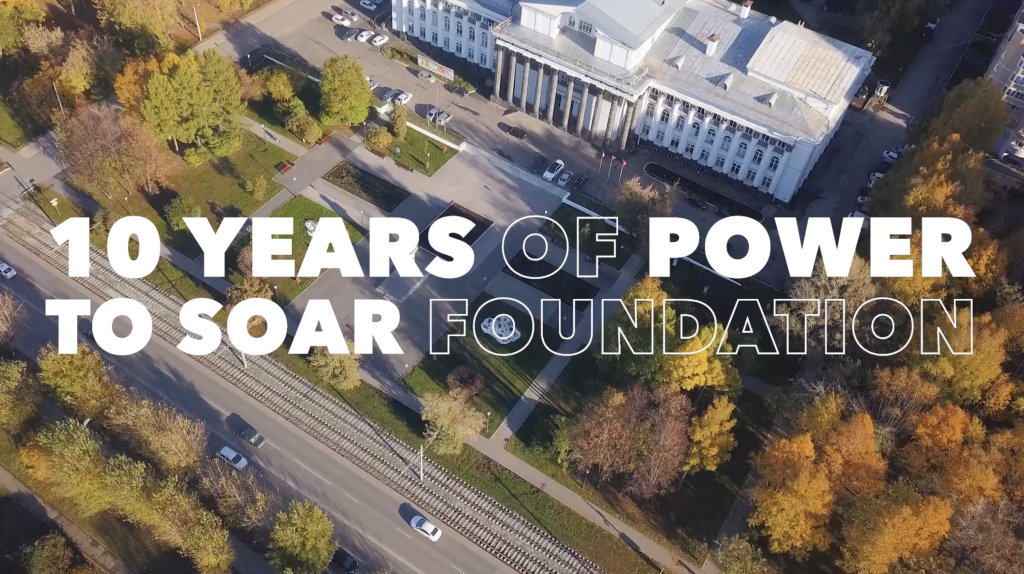Education is a cornerstone of personal growth and societal progress. It shapes how individuals think, communicate, and make decisions, offering tools to navigate life with confidence and purpose. Beyond academics, education fosters critical thinking, creativity, and problem-solving skills that are essential in today’s fast-paced world.
From securing better job opportunities to promoting gender equality and reducing child mortality, education impacts nearly every aspect of life. Studies even show that an additional year of schooling can significantly improve life outcomes, such as lowering teen pregnancy rates and increasing financial stability. It’s not just about learning from books—it’s about gaining the skills and knowledge to thrive.
In a world that’s constantly evolving, education remains a powerful force for stability and empowerment. It’s a lifelong journey that builds character, broadens perspectives, and unlocks opportunities, proving its importance at every stage of life.
Key Takeaways
- Education is vital for personal growth and societal progress, equipping individuals with knowledge, problem-solving skills, and a platform for success.
- It promotes stability and financial security, offering better career opportunities and reducing poverty through higher lifetime earnings.
- Education fosters equality and empowerment, bridging social gaps, promoting gender equity, and enabling upward mobility for underserved communities.
- Healthier lifestyles and societal harmony are major benefits, as education improves health awareness, reduces crime rates, and fosters cultural empathy.
- Modern education adapts to global challenges, integrating technology, STEM skills, and social-emotional learning to prepare learners for evolving demands.
- It supports lifelong learning and dream fulfillment, encouraging continuous development and providing tools to achieve personal and professional aspirations.
Table of Contents
What Is Education?
Education refers to the structured process of gaining or imparting knowledge, skills, and intellectual development across various topics and disciplines. This extends beyond formal settings like schools or universities to encompass informal learning experiences through travel, dialogue, and hands-on interactions.

The process equips individuals with critical thinking abilities, problem-solving skills, and cultural awareness. It serves as a foundation for personal growth and enables individuals to engage effectively in social, professional, and civic environments. Through diverse learning methods, education helps adapt to evolving global challenges and opportunities.
Why Is Education Important?
Education is crucial for building a well-rounded individual and a progressive society. It empowers people with knowledge and skills that enhance their personal and professional lives, while also addressing societal challenges.
- Promotes Stability
Education increases access to stable and rewarding opportunities. By equipping individuals with relevant skills and credentials, it creates a platform for career growth and long-term success. - Ensures Financial Security
Higher education often correlates with better-paying jobs and improved financial outcomes. For instance, individuals with a bachelor’s degree earn an average of $32,000 more annually than those with a high school diploma (U.S. Bureau of Labor Statistics). - Fosters Equality
Education narrows gaps between social classes. It offers equal learning opportunities to individuals from diverse backgrounds, reducing systemic inequities over time. - Encourages Self-Dependency
Educated individuals are more likely to make informed decisions and rely less on external support, fostering independence. For example, financial literacy instilled through education helps manage personal finances efficiently. - Supports Dream Fulfillment
Education serves as a powerful foundation for achieving personal aspirations. It provides the knowledge and networks needed to succeed in competitive fields, making previously unattainable goals more achievable.
By addressing these areas, education remains a cornerstone for individual and collective advancement.
20 Reasons Why Education Is Important
Education impacts individual lives and society as a whole, unlocking potential while fostering progress across multiple domains. Below are 20 compelling reasons that highlight its importance.
1. Enhances Critical Thinking Skills
Education develops critical thinking by teaching individuals how to analyze, evaluate, and approach problems logically. Project-based learning, for example, encourages learners to engage in analytical reasoning, enabling them to make better decisions in life and work.
2. Builds Confidence and Self-Reliance
Students gain confidence and self-reliance by acquiring knowledge and abilities that help them navigate challenges independently. For instance, gaining literacy and numeracy skills enhances decision-making and promotes autonomy.
3. Creates Better Employment Opportunities
Education increases employability by meeting basic job qualifications and enhancing skills. College graduates earn about $32,000 more annually than high school diploma holders, highlighting educational attainment’s impact on career success.
4. Promotes Financial Security
Individuals with higher education levels experience elevated financial stability through better-paying jobs. According to data, educated workers have greater lifetime earnings and lower unemployment rates.
5. Reduces Poverty
Access to education breaks the cycle of poverty by increasing opportunities for economic advancement. In regions where literacy rates improve, household incomes tend to rise, reducing socio-economic disparities.
6. Develops Problem-Solving Abilities
Education strengthens problem-solving skills by exposing individuals to varied challenges and solutions. Experiential learning methods, like case studies, prepare learners to address real-world issues effectively.
7. Encourages Social Equality
By fostering equal access to learning, education minimizes systemic inequities. For example, gender-focused educational initiatives improve outcomes for girls, reducing dropout rates and supporting empowerment.
8. Stimulates Personal Growth and Fulfillment
Education encourages self-discovery and skills development, helping individuals realize their potential. It nurtures curiosity, creativity, and perseverance, essential for lifelong achievements.
9. Contributes to Economic Growth
An educated workforce attracts investments and fosters technological innovation, boosting GDP. Countries with higher literacy rates often experience sustained economic expansions.
10. Promotes Healthier Lifestyles
Education positively influences health outcomes by promoting awareness of healthy habits. A UNESCO study shows children of educated mothers face a 31% lower risk of mortality before age five.
11. Empowers Society Through Knowledge
Knowledge dissemination through education empowers individuals to share information, opening pathways for societal improvement. Literacy campaigns exemplify its role in community upliftment.
12. Supports Community and Social Development
Education inspires civic engagement, leadership, and volunteerism within communities. It equips individuals to address local challenges collaboratively, fostering development.
13. Strengthens Ethical and Moral Values
Exposure to diverse philosophies and ethical concepts through education nurtures integrity. Ethics-focused education encourages responsible behavior and social harmony.
14. Advances Technology and Innovation
Education propels innovation by equipping individuals with STEM skills that drive technological progress. Advanced research facilities, often hosted by universities, exemplify this impact.
15. Improves Communication Skills
Reading, writing, speaking, and listening skills, honed through education, enhance communication. Effective communication strengthens interpersonal relationships and career outcomes.
16. Helps in Global Awareness and Perspective
Education broadens perspectives, fostering cultural empathy and global understanding. Subjects like world history and international relations develop insights into global interconnectivity.
17. Protects Rights and Freedom
Civic education increases awareness of individual rights, legal systems, and democratic frameworks. Educated societies promote justice and equitable enforcement of rights.
18. Cultivates Environmental Responsibility
Environmental education promotes sustainable practices and conservation stewardship. Awareness of climate issues inspires green technologies and eco-friendly behaviors.
19. Prepares for Lifelong Learning
Education instills a learning mindset, encouraging individuals to adapt to changes throughout their lives. Continuous learning supports personal and professional development.
20. Enables the Pursuit of Dreams
Education equips individuals with the skills and networks necessary to chase aspirations. Whether it’s becoming an entrepreneur or a scientist, learning fosters opportunities for dream realization.
The Importance of Education in Society
Education plays a fundamental role in shaping a thriving society by fostering competent, independent, and responsible individuals. It serves as the backbone for societal stability and growth by offering equal opportunities, promoting critical thinking, and encouraging innovation.
- Promotes Equality
Education helps reduce systemic disparities by providing universal access to knowledge, regardless of background. For instance, it bridges the gap between social classes and ensures that opportunities are distributed fairly, advancing social justice. - Builds a Skilled Workforce
A society’s progress relies on an educated workforce capable of meeting its evolving needs. For example, individuals with specialized education contribute efficiently to industries such as healthcare, technology, and education itself, ensuring societal development. - Supports Civic Responsibility
Education improves civic participation by fostering awareness of rights and responsibilities. Educated individuals are more likely to vote, respect laws, and engage in community activities, leading to a more cohesive and active society. - Encourages Social Harmony
Education nurtures empathy, tolerance, and mutual respect among diverse populations. It prepares individuals to understand and accept different perspectives, which promotes peaceful coexistence in multicultural environments. - Boosts Economic Growth
Higher levels of education correlate with increased productivity and innovation. For instance, countries with better educational systems often experience higher GDP growth due to a more efficient and qualified workforce. - Addresses Societal Challenges
Educated societies are better equipped to tackle pressing issues like poverty, environmental sustainability, and public health concerns. For example, education on climate change nurtures environmentally conscious citizens contributing to sustainable practices. - Reduces Crime Rates
By providing individuals with better employment prospects and financial security, education reduces the likelihood of engaging in illegal activities. Studies show that higher education levels are associated with lower crime rates. - Enhances Cultural Preservation and Development
Education helps sustain cultural heritage while fostering innovation. By teaching traditions and history alongside new ideas, it ensures that societies honor their roots while progressing dynamically. - Facilitates Social Mobility
Through education, individuals from underprivileged backgrounds can achieve upward social mobility. For example, scholarships and inclusive educational policies enable marginalized groups to access quality education and improve their lives.
Society thrives when its members are educated, skilled, and socially conscious, creating a balanced ecosystem where progress and harmony coexist.
Education in the Modern World
Education evolves to address the demands of a rapidly changing global landscape. It integrates technology, personalized learning, and innovative teaching methods to meet diverse educational needs. Digital tools enable students and professionals to access interactive resources, online courses, and virtual classrooms, making education more inclusive and adaptable.
Global collaboration becomes integral in modern education. Cross-border online learning programs and cultural exchange initiatives expose individuals to diverse perspectives and global challenges, fostering mutual understanding and respect. This interconnected approach prepares learners to contribute meaningfully in an increasingly globalized world.
Skills training in STEM fields (science, technology, engineering, and mathematics) propels technological advancements and economic development. Coupled with a focus on communication, teamwork, and problem-solving skills, education in the modern era ensures students are workforce-ready.
Social-emotional learning gains priority in curricula to address mental health and holistic development. By teaching emotional intelligence and resilience, education helps learners navigate personal and professional challenges effectively. Incorporating these themes broadens the scope of traditional education to establish lifelong well-being and success.
Blended learning models, combining traditional classroom instruction with digital platforms, cater to varying learning preferences. This flexibility supports accessible education for individuals in remote areas or non-conventional learners. These approaches redefine educational structures, ensuring they remain relevant and impactful.






